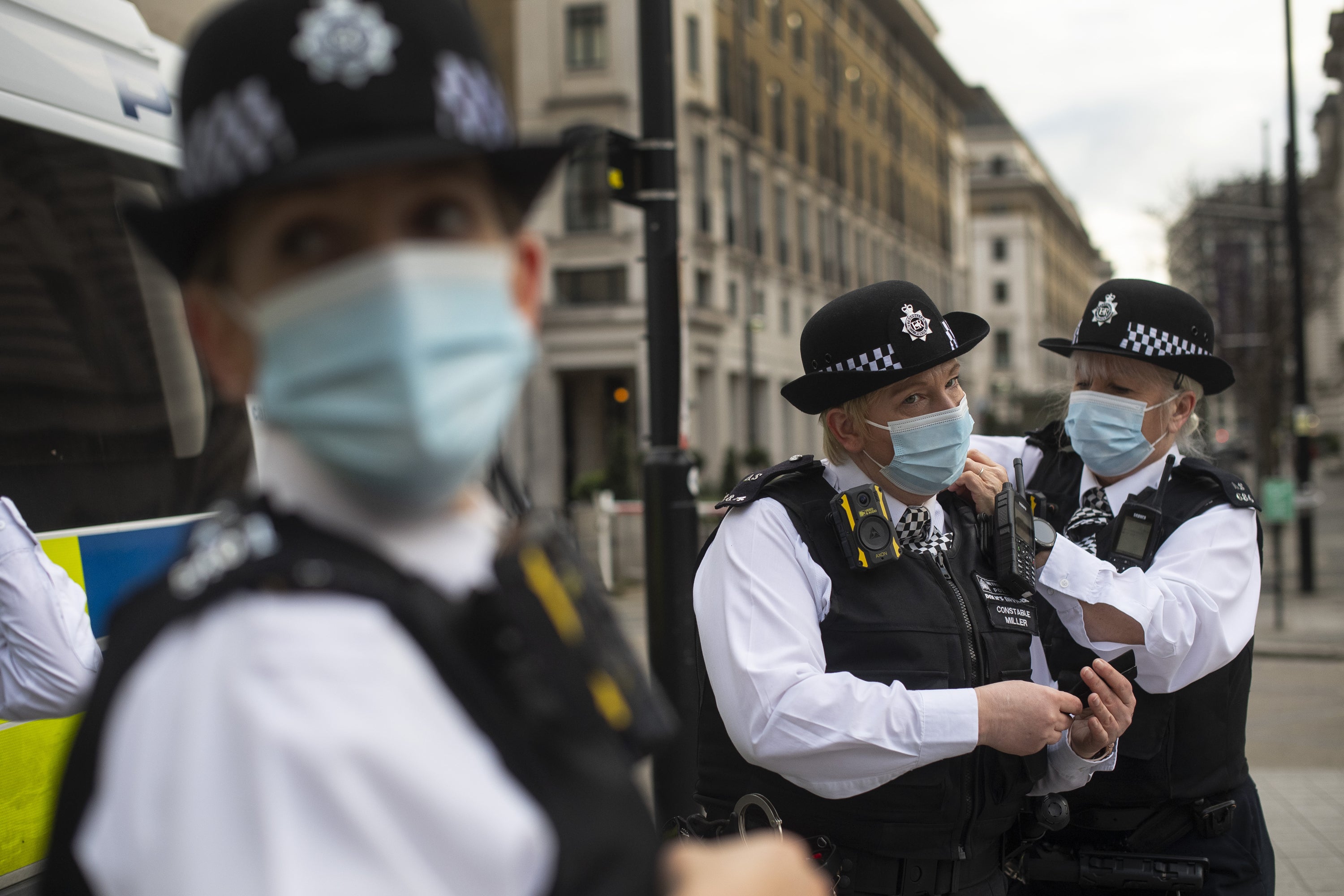Misogyny present in ‘every police force’, female officer says as men urged to change culture
Female officers told they got promotions because they’ve ‘got tits’ and targeted with jokes about sex acts, conference told

Misogyny is present in “every police force” in the country, a female police officer has said amid calls for cultural change.
A succession of high-profile cases, including the murder of Sarah Everard and revelations about bullying at Charing Cross police station, have put male officers’ treatment of women including their own colleagues in the spotlight.
During a conference for rank-and-file police officers in Manchester on Wednesday, female officers challenged men to change their behaviour and speak out.
Zoe Wakefield, a member of the Police Federation’s national women’s group, told delegates: “If anybody says ‘it doesn’t happen in my force’ you’re wrong, because it does happen in every single force.
“Even if you’re in a great team, it does still happen in every force and we do still need to be alive to it.”
Sam Hawkins, secretary of the group, aded: “For those of you sitting there saying ‘it doesn’t apply to me, I don’t see that’, I’d challenge you to take five minutes and think, because there will be examples where you have seen things and said things.”
Ms Hawkins said some male officers may be unconsciously biased against female colleagues, but “it can escalate if that behaviour becomes acceptable and is entrenched”.
Female officers’ accounts of behaviour they had witnessed were read out during the session on misogyny, which came on the second day of the Police Federation’s annual conference.
Several reported suggestions that they did not deserve promotions or had been selected for certain roles because they were female, including one officer who was told: “You only got on a [public order] course because you’ve got tits.”
After receiving a charging decision from prosecutors, a female officer was asked “what did you do, give him a blow job?”, while another officer had seen police community support officers rating which women in custody they would sleep with.
Sexist phrases including “man up”, “you run like a girl” and references to “wearing the trousers” were also said to be common.
Addressing the crowd of mainly male police officers, Ms Hawkins said: “We know as women that not all of our colleagues are predators and behaving in that way, but we do need men and women to speak out and challenge that behaviour, because it takes an awfully long time to change culture.”
A female sergeant told the session that she had witnessed “a lot of empathy” among male officers for a misogynistic male officer she was managing, who later left the force while awaiting a gross misconduct hearing.
“They were saying ‘oh he was so close to retirement, he could have had his pension and gone in a couple of years’,” she added.
“The empathy seemed to immediately be on the offender and it was predominantly coming from male colleagues.”
The woman called for the Police Federation, which represents almost 140,000 rank-and-file officers in England and Wales, to give as much support to victims of misogyny as the male members it backs during disciplinary processes.
Under a third of police officers in England and Wales are women, and concerns were raised that bad treatment may cause more to leave or prevent others from applying.
Sal Naseem, an official from the Independent Office for Police Conduct, told the conference that “canteen culture” was an ongoing issue.
“The Charing Cross case was serving officers bullying other serving officers, and the victims who came forward hadn’t had their complaints listened to in the first place,” he added.
“Officers from marginalised groups need to be welcomed in policing, their difference needs to be valued. If it isn’t, those officers won’t stay because the data already shows that officers from these groups are leaving at higher rates.”
Sue Honeywill, chair of the Police Federation women’s group, said that as well as an overall lack of women police officers there were disproportionately few in senior ranks.
“Our aim would be to have 50 per cent women in the police service and equal at different ranks as well,” she told The Independent.
“I want to encourage people to stand up and challenge misogyny so we can change our culture. We’ve got to. I do want people to not be bystanders.”
Ms Honeywill, who has served for 25 years in Devon and Cornwall Police, said that more officers were reporting sexism and misogyny, causing more disciplinary cases to come into the public domain.
“I think we’re going to see more cases and become aware of them,” she added. “Is it happening more? I don’t know but I certainly know it’s being reported more.”






Join our commenting forum
Join thought-provoking conversations, follow other Independent readers and see their replies
Comments